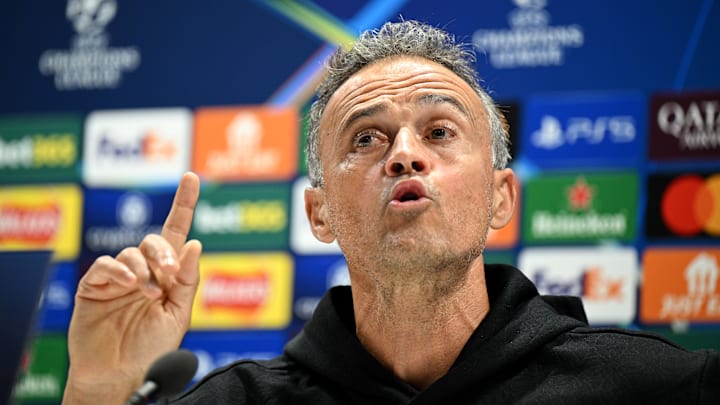Luis Enrique the current PSG manager is facing an onslaught of doubts and questions as his possession-based tactics seem to be clashing with the natural strengths of prominent Paris Saint-Germain players like Ousmane Dembele, Achraf Hakimi, Nuno Mendes, and Bradley Barcola.
While Enrique emphasizes on a ''U'' shaped build-up and positional play, These players thrive in Transitional plays and counter-attacks where they can leverage their quick and fast attributes.
L’Equipe reports that the biggest problem remains the difference between Luis Enrique’s tactical philosophy and the strengths of the squad at his disposal.
One of the most frustrating parts about Enrique is how his emphasis on methodical build-up and possessional discipline has come at the cost of Nuno Mendes.
Typically a marauding left back known for his offensive outbreak and attacking surges, Mendes has rather been used more conservatively, tasked with playing as a left-sided center-back, recycling possession, helping in the build-up play, and maintaining positional discipline.
This decision has stifled his ability to exploit spaces during transitional plays and his overlapping runs an area where his skills shine. This decision has not only stifled Mendes' creative freedom but also has dulled PSG's one of the effective weapons on the left flank and has blocked a key attacking outlet.

Should Luis Enrique ditch his style of football?
While Enrique’s playstyle may not be the perfect fit for our current squad, he doesn't need to completely overhaul his philosophy. Instead, finding the right balance between his footballing ideals and the team's strengths is key.
By making subtle adjustments, he can ensure that PSG not only achieves the immediate results needed to quiet external pressures but also develops a distinct identity over time.
This approach will allow for both short-term success and long-term stability, aligning the team’s identity with the club’s ambitions of not just winning the UCL but being a dominant force in Europe.
